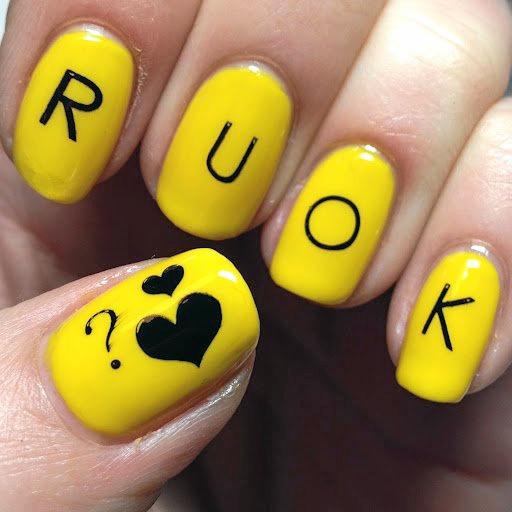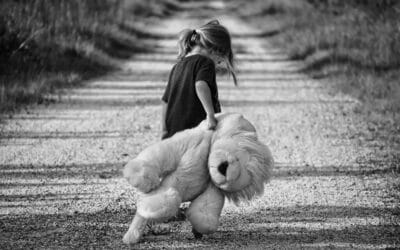They say the “Universe” (whatever that means) sends therapists particular clients for a reason. The theory goes something like this: clients will bring to you what you need to work on in yourself. If you believe that sort of thing (I don’t), it should be a wakeup call; something you need to pay attention to that you have too long ignored.
In the past few months, I have had a string of clients who struggle to process their emotions; clients who feel shame that they are not okay. A big part of our work has been helping them get in touch with their emotions and then expressing what they feel in healthier ways. I have worked to reassure and help normalise their experiences. I have helped them realise it is absolutely okay to not be okay.
Fine, Universe, I am listening.
When I was training to become a therapist and a counsellor, I was told again and again to be mindful of my “self-care”. Supporting others – witnessing their pain – exposes us to that pain, and leads (inevitably) to vicarious trauma. Self-care is the therapy teacher’s mantra; self-care is what we do to prevent burnout, to protect ourselves – how we remain “okay.”
Implicit in this (as with much of the self-help industry) is the view, if you are not okay, despite your best efforts, it is somehow your fault. You haven’t done enough self-care, or the right self-care.

The focus of my studies was so much on prevention they did not prepare us for what happens when we are not okay, when despite our best efforts, our self-care does not help. No one prepared us for what happens when there is no one to safely witness our pain.
And no one prepared us for when we (inevitably) feel we are inadequate, that it is our fault.
The mantra of self-care attaches blame (and therefore shame) to not being okay. Because we are supposed to be the ones who have our shit together. Who help others.
When everyone knows what you do, you feel judged for not being okay. You are supposed to have the answers. You are supposed to look after yourself.
No one can see me vulnerable; how can I help others if I cannot help myself?
The truth is, I am human. I have (a multitude of) flaws. I experience pain. It is not always logical or rational or even justified. It just is. I am like everyone else who comes through my door seeking help.
The difference is, when someone comes through my door, I stuff all my pain under the covers and lock it down, because I am there for them. I am there to witness and hold them through their pain.
But what happens after they leave? When it stays stuffed down? When I move through each day aware I am being watched, judged, because the people I encounter, even those closest to me, know I am responsible for helping others, and therefore, being okay?
Sure, I perform the rituals of “self-care” and remind myself it is not my pain, not my story, it is theirs; but in doing so I fail to acknowledge my pain, my story. I keep stuffing it down until I sense I might explode, but still I can’t feel it. Not really. It’s below the surface, pushing and shoving, and I know it’s there. I carry its weight, its bulk, its awkwardness, but it remains detached from me, as though it is their pain, too.
No one prepared me for what happens when I find myself throwing tantrums over ridiculous things that don’t even matter, and still I can’t feel. Because the pain is buried beneath all that casing, that armour. So far away. It builds and builds, but it’s so distant — unreachable.
It’s right there.
No one prepared me for not knowing where to turn for help because they will judge me too: You have no business helping others if you can’t keep it together. You are a fraud and incompetent, and why weren’t you doing your self-care?
Surely a part of self-care is letting yourself be weak? Acknowledging when you hurt, when you don’t get things right. When you feel jealous and petty and inadequate. When you are fearful and angry and when you just need a break from supporting to be supported. When you are overwhelmed and don’t have time or space to self-care.
And so I turned to my peers and asked how they self-care, but their replies did not comfort me.

After all, what is self-care really? It’s not burning sage and playing your sound bowls or swimming in the ocean to cleanse the bad ju. It’s not wrapping up other people’s pain in a play-mat and sending it home with them. And it’s more than eating well and drinking less, doing exercise and meditating.
Those things help, but they are not enough. They are not enough when you have all this pain stuffed down inside and your container is reaching breaking point and you have no safe way to let it out.
Being safe means being free from judgement. And I am my own worst critic.
I decided enough was enough. I went to see another therapist to help with my “emotional constipation,” which my partner and I termed “emobung.” (We even added it to the Urban Dictionary because these are the ways you amuse yourself in an effort to cope when you’re not really coping at all).
I asked this therapist, a peer, to help me release all this emotional build-up, to help me stop feeling triggered irrationally by things that don’t even matter.
The entire time I was there, I fought my desire to open up. I didn’t feel safe. I felt judged. Whatever I expressed exposed my inadequacies as a therapist.
Traditional psychoanalysis considers the therapist a blank canvas onto which (whom) the patient projects his or her unconscious thoughts. I sprayed that canvas with shame and inadequacy, with judgement and flaws and suppressed grief.
At the end of our session, I offered to return the favour (as we had agreed). My fellow therapist mentioned her partner might want help, so I extended the offer to him. Yes, she said, that would be better. There’s nothing I need to work on right now.
Onto that, I projected my weakness and my flaws. I was certain she no longer saw me as her equal or as competent to treat her. She had witnessed part of my pain – a mere part – and I had fallen short, unworthy.
Perhaps our values did not align or I am not a good fit for her (after all, she listens to the Universe).
Or, she doesn’t have anything to work on right now.
Why isn’t the simplest, most direct response the one I heard?
For the past week, I have been listening to the recording she made of our session as I drift to sleep each night. My dreams have featured my abusive ex for the first time in years, but everything has changed. He no longer frightens me.
I wonder what the Universe wants me to make of that?
During the last few days, I have begun to cry. Just small scatters of tears, but blessedly letting the emotions out — feeling them — instead of stuffing them back where they can’t be reached.
This morning, I acknowledged I am not okay.
This is progress, I guess.
And now here I am alone, ignoring my to-do list, typing. Letting these words bear witness to my pain, the tears finally flowing. Each blank page a canvas for what I cannot reveal safely to anyone else. Truly feeling without judgement at last.
But what happens when I release this testimony into the blogosphere? Will I lose credibility? Will I be judged incompetent, for not doing enough “self-care”, for letting my clients’ pain bleed into my own, even though I know none of this is true?
Or in bearing witness to these emotions will I finally set them free? Stop feeling ashamed for being human? For needing help. For wanting to be supported and nurtured and encouraged and acknowledged. For feeling so alone.
Will I be able to accept it does not make me weak or a failure, that it isn’t my fault for not being strong enough or detached enough or competent enough? Will I see what I help my clients see, that it takes strength and courage and compassion to let yourself feel? Will this ultimately make me a better therapist, a better friend, a better person, not a lesser one?
At best I hope my acknowledged “weakness” helps others see it is okay to not be okay, no matter who you are or what responsibilities you have. You are human. And that is okay.



